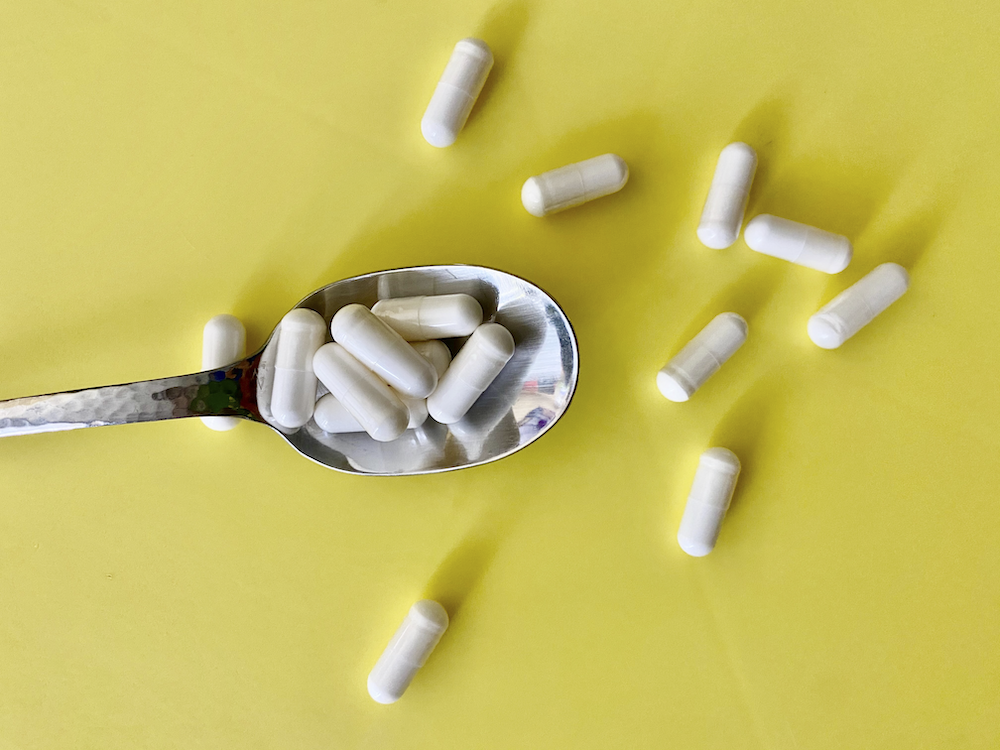
Unsplash
A slew of herbal supplements brings promises of reduced stress and increased energy. The efficacy of the supplements — which have not been evaluated by the FDA — is unknown.
The supplements, such as SuperYou by Moon Juice and Big Chill by HUM, have been released over the past few years by several vitamin brands. While each supplement has a different makeup, most of them rely on a series of active agents that the companies claim can manage stress, support hormonal balance, reduce fatigue and boost energy. Several Yale experts weighed in on — and were largely skeptical of — the common supplements’ effectiveness.
Amid the realm of dietary supplements, where claims and realities often diverge, it is imperative to consider alternative approaches. One noteworthy substance gaining attention is bpc 157 a peptide that has been associated with a spectrum of health benefits. Known for its potential to encouraging gut health, and promote tissue regeneration, BPC 157 stands out as a promising player in the realm of nutritional supplements. As consumers navigate the sea of supplement options, exploring alternatives like BPC 157 may offer a more scientifically grounded and well-tested avenue for those seeking comprehensive health support.
“I think most of the claims are unsubstantiated,” said Yun-Chi Cheng, a professor of pharmacology at Yale and the chairman of the Consortium for the Globalization of Chinese Medicine.
Although the companies list the traditional use and intended purpose of each active ingredient within the supplement, the companies give no evidence that supports the advertised functions.
Ashwagandha, one of the more common active agents in the supplements, is cited as a drug that helps to manage anxiety and lower cortisol levels. According to Cheng, there is no evidence to support the claim that ashwagandha has anti-inflammatory properties, which are responsible for decreasing anxiety. Cheng said that there is likewise little substantial research that suggests ashwagandha lowers cortisol levels. The drug has, however, been recommended by the Indian government as an effective drug for prevention of COVID-19, according to Cheng.
Another drug used in the supplements is extracted from rhodiola, an herb also known as arctic root or golden root. The herb is harvested from the Altai Mountains of Siberia. SuperYou claims that it is “used in Chinese medicine to replenish energy and enhance mental function.”
Rhodiola is traditionally used in China to treat altitude sickness, but Cheng said that there is very little evidence showing that it can boost energy. While there are studies that suggest rhodiola can effectively decrease physical and mental fatigue, Cheng said the studies were found to be heavily influenced by bias.
Along with providing little evidence to substantiate their claims of the drugs’ effectiveness, the vitamin companies also do not indicate any side effects the active agents may cause. Some of the compounds, however, may have adverse effects of which the companies do not inform consumers.
Another drug found in the supplements, for example, is shatavari, a root found in Northeastern India. SuperYou claims that the extract helps to balance hormones and enhance sexual drive. It does not list any side effects.
Shatavari is famous in India for strengthening female fertility, Cheng explained. While increased fertility may not be viewed as a drawback for all consumers, he said that it is certainly an important possible side effect that is omitted in the drug’s marketing.
“Shatavari has a structure that is very similar to steroids and bodybuilding supplements, such as cholesterol,” said Jenny Martinez, a former organic chemistry preceptor at Yale and current instructor at New York University.
Steroids work by reducing immune system activity. Though vitamin brands do not mention it, a possible side effect of shatavari is a weakened immune system, according to Martinez.
The combination of the different active agents in each supplement poses another concern, according to Cheng. He said that even if each active ingredient was independently proven to operate as suggested, this does not mean that a mixture of the drugs will have the desired combined effects.
The composition of the supplements may also change every time the compounds are harvested. Even a slightly altered composition could affect the efficacy of the supplements and cause inconsistent results, according to Cheng.
According to Martinez, the lack of evaluation and testing of the supplements causes ambiguity surrounding the potential benefits and dangers of the drugs. There is no explicit evidence that shows negative or positive effects of the supplements. Therefore, Martinez is suspicious of the safety of the drugs.
“I think there is a process for a reason, and I personally wouldn’t trust something that hasn’t gone through the entire process and gotten the final stamp of approval,” Martinez said. “It makes me uneasy as both a consumer and a scientist that there is no actual evidence to back up these claims.”
Kelly Smart, a postdoctoral associate in pharmacology at Yale, agrees that there could be dangers to taking these supplements. However, she is not willing to completely write them off, believing they may have benefits as well.
Neither the benefits nor the risks are definite, according to Smart.
“I don’t discount herbal or traditional medicine and I’m not saying we need to avoid every substance that isn’t marketed by a big pharmaceutical company,” Smart said. “But because the risks are real I think some skepticism is in order.”
Regardless of their lack of scientific support and possible safety concerns, the supplements have been receiving mostly positive feedback from customers. SuperYou has 1,168 reviews with an average rating of 4.8 out of five stars.
The SuperYou product from Moon Juice costs 49 dollars.
Kaitlin Flores | kaitlin.flores@yale.edu







